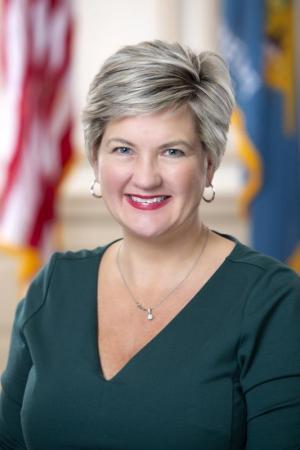Gov. John Carney recently announced that Delaware schools will use a hybrid of in-person classes and remote learning this fall. Many schools, like those in the Red Clay School District, are planning to start the year fully remote while plans to safely return to the classroom are finalized.
As a lifelong teacher, I support that approach. Many of our school buildings are crowded and poorly ventilated - half of the classrooms I taught in had no windows - and we need more time to come up with the safest, most effective return plans.
But online-only learning has its challenges, too.
Online learning didn’t get a passing grade in March when schools closed. Teachers across the state say their schools weren’t prepared for the transition. This is understandable given the novelty of the virus and unexpected measures that had to be taken to curtail spread, but months have gone by now, and we have to do better. Public education has always been about more than just textbooks and lesson plans - it’s about meeting our students’ different academic and social-emotional needs, sparking curiosity, and modeling critical thinking. To make online learning work, educators, parents, government officials, and the private sector need to work together on this challenge.
Step one is simply making sure each student has a computer and access to the internet. Many children in low-income families don’t have a home computer. And students in households that haven’t adopted broadband - disproportionately low-income and minority families - are at significant risk of falling further behind.
We have the ability to bridge that gap. Broadband providers stepped up this spring to offer free access to residential broadband for low-income families, and students and school districts across Delaware have received $39 million in funding through the CARES Act, which can help provide laptops, digital literacy training, and broadband.
Expensive as that step might be, the next step could be even more difficult. Too many students reportedly went AWOL with remote learning. That appears to be as much a content issue as a computer or broadband connectivity one. Lesson plans developed for the classroom didn’t translate well online; parents and teachers say their students just didn’t find remote assignments very engaging.
We have thousands of dedicated, creative teachers here in Delaware, and I know they are working overtime to adapt to these difficult scenarios. The rest of us - in government and elsewhere - must be prepared to do our part to back them up, whether that’s with modernized curricula, technology, or other supports.
We also must ensure we don’t lose the personal touch when delivering instruction remotely. I spent 25 years teaching in public school classrooms, and I knew many kids for whom school was a refuge, a source of stability in otherwise troubled lives - a safe haven for learning and growth that disappeared when schools closed.
If we expect to make online education work, we need to ensure that students from challenging backgrounds are getting all the social and emotional support they need. As Wendy Turner, Delaware’s 2017 Teacher of the Year, has argued, “Social and emotional learning is the foundation, the heartbeat of the classroom.”
I’m encouraged that Delaware’s Reopening School Guidance working groups have prioritized this critical piece of the puzzle. To further advance this, we could also offer social-emotional support through targeted home visits or by turning temporarily closed school buildings into support hubs offering counseling and other services. From equipping students with computers and internet access to ensuring that each student is engaged in learning this fall while receiving the support they need, we know that tackling this year’s unprecedented challenges will take a statewide effort. Each of us has a role to play, and thousands of students are depending on us to get this right. As we approach the first day of school, I look forward to working with our many businesses, state leaders and advocates to make sure we do just that.






















































